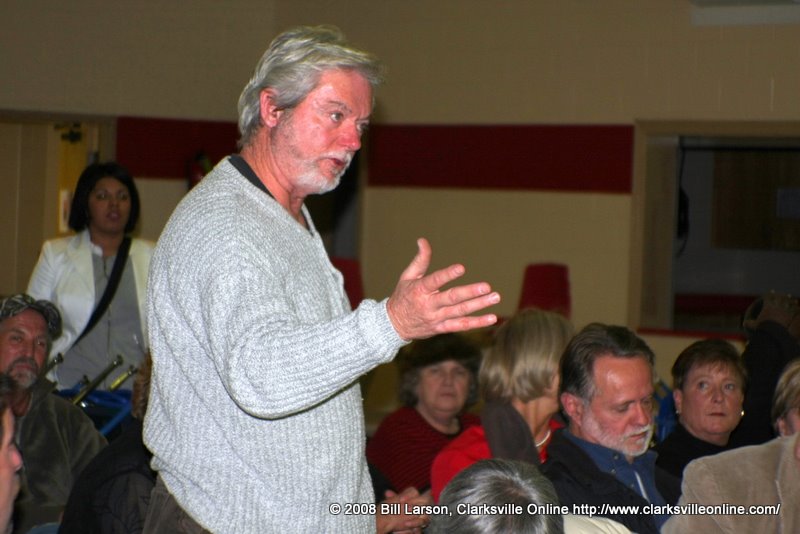
“Sued for a half million dollars for speaking out…”
“This ordinance is detrimental to the community…”
“The City Council ‘rubber stamped’ the mayor…”
“I don’t think they have a plan…”
“Our Leadership doesn’t want to listen to us….”
“CHA is a shadow, not a voice…”
“Preying on minority communities…”
“I’ve never been to a public forum where the public couldn’t speak…”
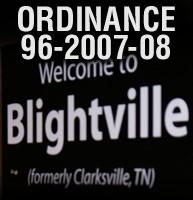 This is what representatives from the United States Department of Justice, the Department of Housing and Urban Development, and the Institute for Justice heard when they came to Clarksville Thursday to listen to community concerns about the about the city’s controversial redevelopment plans. Seventy people participated in a fact-finding meeting at the New Providence Community Center on Oak Street sponsored by the NAACP and the Urban Resource Center.
This is what representatives from the United States Department of Justice, the Department of Housing and Urban Development, and the Institute for Justice heard when they came to Clarksville Thursday to listen to community concerns about the about the city’s controversial redevelopment plans. Seventy people participated in a fact-finding meeting at the New Providence Community Center on Oak Street sponsored by the NAACP and the Urban Resource Center.
Walter Atkinson, Senior Conciliation Specialist with the U.S. Department of Justice Community Relations Service (Southeast Region IV), in stating that the meeting was “to hear community concerns,” said his role was in part to try and avert “litigation.”
“I am here to listen and observe,” Atkinson said, noting that it was letters from NAACP Chapter President Jimmie Garland and Terry McMoore of the Urban Resource Center that focused federal attention on this local issue. Atkinson had been “in communication” with Mayor Johnny Piper and with the Downtown District Partnership Board. Piper, DDP members and most sitting City Councilors did not attend this meeting. Jim Doyle, who was not re-elected to his Ward 8 seat, along with newly elected councilors Candy Johnson, David Allen and Jeff Burkhart did attend the meeting and spoke with the Ward 6 constituency.
 The origin of the issue and the center of the controversy, which exploded in November, 2007, is a city ordinance that was quietly developed and passed by the City Council; at its core was section that designated two square miles, 1825 homes and small businesses in the downtown area, including City Hall and the Courthouse, as “blighted,” with the exception of property owned by Austin Peay State University. The ordinance also included an assemblage clause that would allow eminent domain to be used in “assembling” a group of properties to be transferred to private developers who would “maximize” the potential of the land involved.The land in question lies in Ward 6, the city’s only major minority ward, which, according to Garland, may be protected under the Civil Rights Acts of 1964.
The origin of the issue and the center of the controversy, which exploded in November, 2007, is a city ordinance that was quietly developed and passed by the City Council; at its core was section that designated two square miles, 1825 homes and small businesses in the downtown area, including City Hall and the Courthouse, as “blighted,” with the exception of property owned by Austin Peay State University. The ordinance also included an assemblage clause that would allow eminent domain to be used in “assembling” a group of properties to be transferred to private developers who would “maximize” the potential of the land involved.The land in question lies in Ward 6, the city’s only major minority ward, which, according to Garland, may be protected under the Civil Rights Acts of 1964.
In response to the passage of the ordinance, a grassroots activist group was formed: the Clarksville Property Rights Coalition, who staged an initial Standing Room Only meeting at the Hope Center on Legion Street in November, 2007, which attracted 50 people. Several weeks later, a second meeting at the Train Station on 10th Street was not only packed with concerned citizens but had the overflow crowd of 300 spilling out the doors. A postcard campaign was organized and specialists including representatives and lawyers involved in historic preservation and litigation became involved. Subsequent meetings, including one at APSU where the CPRC and others were not allowed to speak or make a presentation to city officials, and another meeting at the Burt School on Eighth Street where a last minute change in building capacity left nearly a hundred people standing in the parking lot, signs in hand, but unable to speak out to officials or hear what being said inside. Piper later admitted that of the written comments from the concerned residents were destroyed.
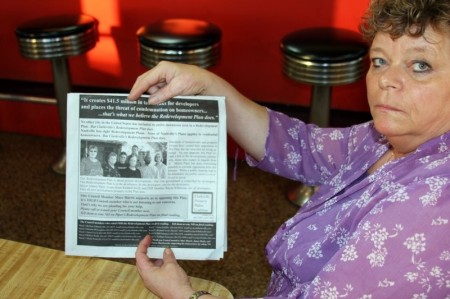
With city officials squaring off against Ward 6 residents and business owners, the redevelopment plans became the supercharged issue of 2008; an ad placed in a local newspaper by the CPRC made a case against the ordinance and proposed development, and The case, borne of a highly controversial ordinance passed by the Clarksville City Council in November, 2007, that “blighted” some two square miles of downtown Clarksville, culminated in a libel suit over a newspaper ad taking some city officials to task for their actions in supporting the ordinance that potentially opened the door for taking of properties by eminent domain and for private development.
In that case, Richard Swift, a developer who is a member of the Clarksville City Council, and Wayne Wilkinson, a member of Clarksville’s Downtown District Partnership, sued the CPRC because its members criticized them for supporting Clarksville’s controversial redevelopment plan, which authorizes the use of eminent domain for private development. In a newspaper ad, the CPRC noted that both Swift and Wilkinson are developers and said, “This Redevelopment Plan is of the developers, by the developers, and for the developers.” Virginia’s Institute for Justice represents the CPRC in the case.
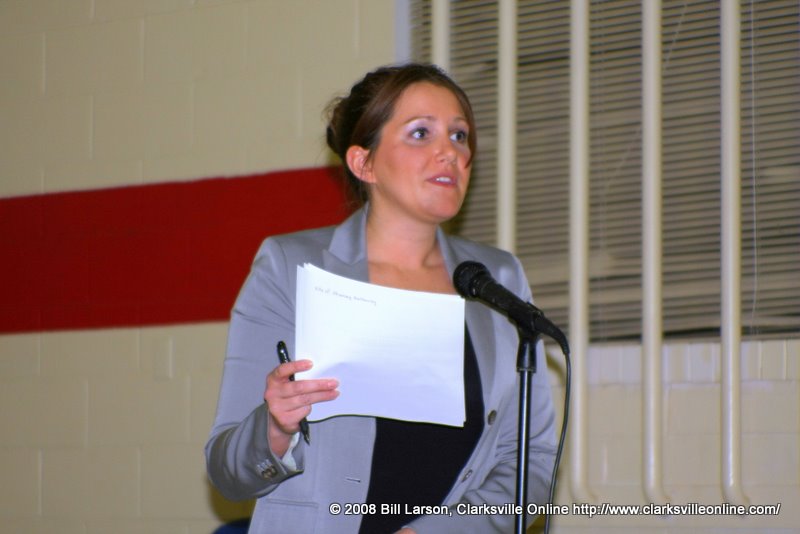
Becky (McMahan) was sued for a half million dollars for speaking out,” said Christina Walsh, Director of Community Organization for the Institute for Justice. “The Clarksville Center Redevelopment and Urban Renewal Plan violates the rights of home and business owners in the redevelopment area. The saga of how it was passed illustrates perfectly why the abuse of eminent domain is wrong. This plan would not pass muster in many states.”
“We do have the right to speak. We are not a Third World Country. Wake up, Sleeping Clarksville, and realize that this is our community. Question the ordinance and the need for the ordinance, and the potential use for the ordinance… even some of the city councilors did not understand this ordinance, and if they didn’t understand it thow can they vote on it.” — CPRC member
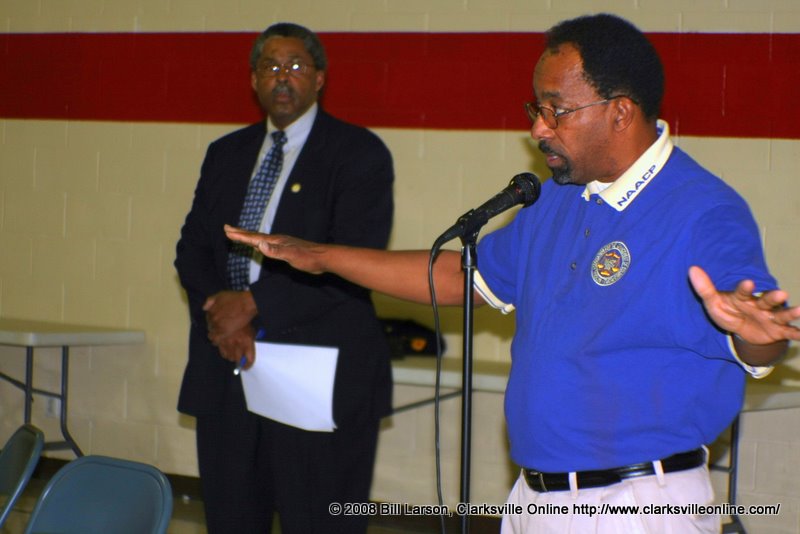
Jimmie Garland charged the City Council with “rubber stamping” the mayor on this issue and asked where “the plan” for development. “Knoxville showed us a plan and invited the community in; that’s not how it was done here There is no plan here.” Garland said that Clarksville’s present leadership does not want to represent us and “does not want to listen to us.” (Ed: garland excepted Ward 6 Councilor Marc Harris, who opposed the plan). “Our legislators don’t listen to us.”
“Clearly, the confluence of bad law and politically connected developers here does not bode well for the citizens of Clarksville, who have been virtually abandoned by the very political officials they elected to represent their best interests…Local governments very often disguise their intentions of transferring perfectly fine properties to private developers, declaring so-called “blight removal,” “urban renewal,” or “slum clearance” as the justification for eminent domain. … they hide behind this “public use” concept in their quest to acquire property for the private use of developers.” ~~ Christine Walsh
Walsh noted that Piper himself said the plan “was not written in strict accordance with state law,” at which point the city amended rather than rescind the plan, and took a trip to Knoxville to view that city’s redevelopment process.
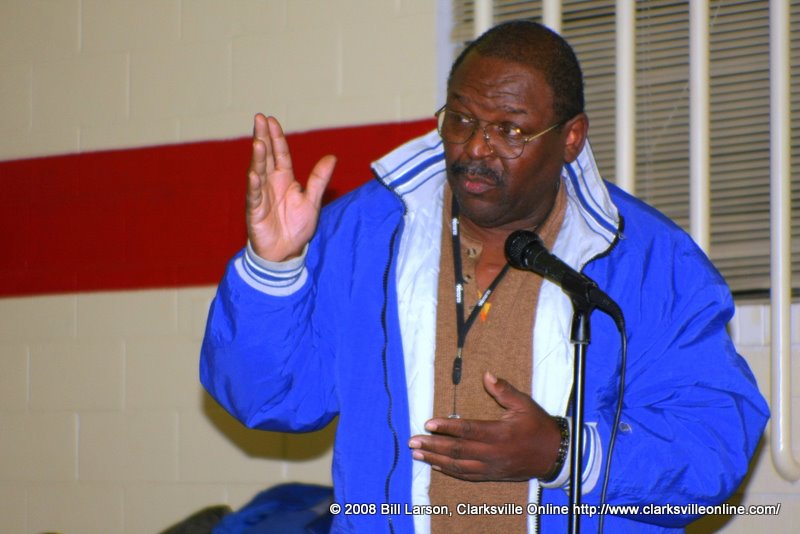
Turner McCullough Jr. said “the mayor himself said there is no plan.” After the APSU public forum in which the “public” could not actively participate, and “when (the public) asked for information, we were told to shut up. We were not considered.”
Wanda McMoore noted that the ordinance assesses what terms “underutilage” of land, which the Institute for Justice and the CPRC read as property that could rake in more profit and more taxes if uses for something other than what it is (i.e., three homes vs a strip mall, five homes versus and apartment complex, a family-owned restaurant vs waterfront condos).
Edward Vanderbilt of Kelly’s on Riverside Drive questioned why, under eminent domain his land and business could conceivably be taken for a minimum of money that wouldn’t even buy a plot of land somewhere else while “the mayor sells his land and gets millions” (Mayor Piper owns land along Riverside Drive that is in the redevelopment and marina area).
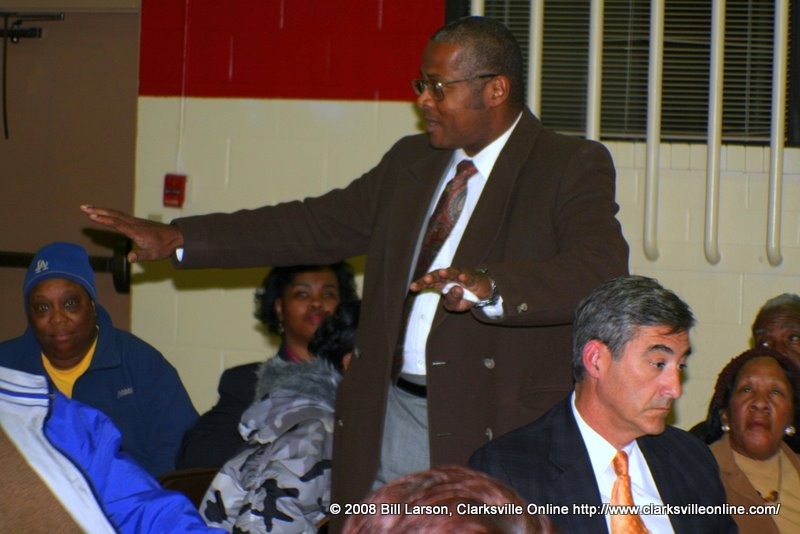
Kevin Johnson of the Veterans Services of America suggested that beyond stating what they do not want, the residents of the area and members of the CPRC, along with local community leaders, should assess what they do want, what kind of growth and positive change they would like to see in their community, and what they would use in lieu of the present ordinance.
It was noted that legislation passed in 2006 can withhold federal funds to communities that use public money to fund private development.
A theme that ran through many of the statements offered by concerned citizens included the following:
- The assemblage clause is of serious concern
- Eminent domain should not be used for private development. (“Take eminent domain out of this plan.”)
- Elected officials simply do not listen to or want to hear from dissenting constituents
- Developers and real estate people with properties in the affected area should recuse themselves from voting on issues which may benefit them (conflict of interest, ethics)
- The actual authors of the ordinance should be disclosed. (“Who wrote this damned thing?”
- According to law, redevelopment plans in Tennessee must be overseen by a housing authority. A determination of Kevin Johnson of the Veterans Services of America participation in the development and execution of the ordinance and redevelopment efforts should be disclosed (Wanda Mills of the CHA has said publicly the CHA did NOT do a study for this plan)
- Demographics (ethnicity, gender etc) of development and advisory boards should be disclosed and appointees to these public posts should be present at meetings when their appointments are confirmed, rather than simply being “a name on a piece of paper.”
- What are the qualifications of the people who created the ordinance?
- Why aren’t more members, if not all members, of the board from the areas impacted by this law?
- What have HUD and other federal monies really been spent on? Has HUD funding been redirected to other projects outside of the designated districts or parameters?
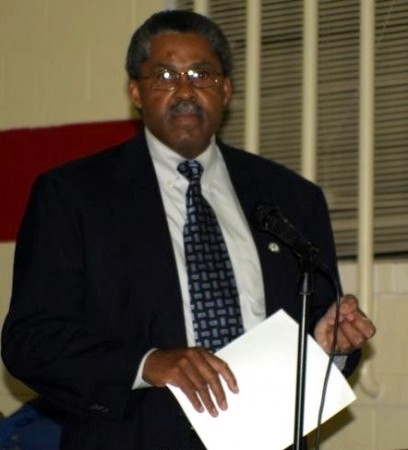
In summing the comments accumulated during the fact finding meeting, Atkinson asked the audience to consider the following?
- If the plan is dropped, what do you want (in your community)?
- What qualifications do you feel people need to participate on redevelopment and related boards?
- What kind of oversight (and by whom) do you need for your community?
As the meeting closed, Terry McMoore noted that he had sent “many, many emails and invitations to people about this meeting, including city officials and Mayor Piper. Given the Mayor”s lack of response and absence from this session, McMoore requested that Atkinson himself ask the Mayor to attend the next meeting on this issue.
Also attending were Housing and Urban Development (HUD) Representative David H. King, Director, Knoxville Field Office; , Louisville, HUD Fair Housing Equal Opportunity; County Commissioner Lettie Kendall; CPRC spokesperson Rebecca McMahan; and Tim Harvey, former City Attorney.



Thank you, Christine, for a comprehensive report, in contrast to the local newspaper, where about all I could glean was that 70 people attended, and there will be a larger meeting in the future. Fully intending to be there, I was sidetracked by Anne’s dental work that afternoon, which left no one but me to instead care for her and our children.
Although it was wonderful to have concend citizens to attend this forum, I am distressed that we were entertained by a menber of the Department of Justice that did not posses the authority to remedy the plight of the citizens of this community. I will ask organizations petitioned to appear at the next meeting send representative who wll be equipped to take appropriate action to correct the injustice being inflicted upon sectors of our community.